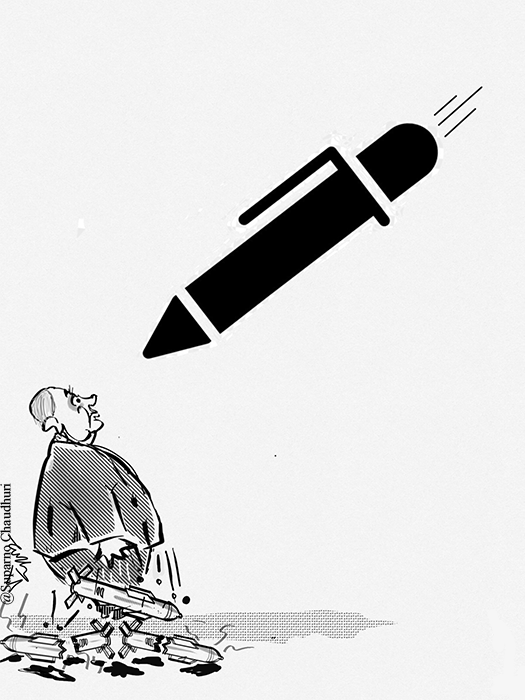Trump’s tariffs trigger a shift toward multipolar world
US President Donald Trump’s unilateral imposition of a series of sweeping new tariffs on August 7 have triggered a trade war and changed the world order with India, Russia pivoting toward China. The recent SCO summit in Tianjin marked a watershed in the history of geopolitics since the WWII. The unipolar world looks unsustainable now, looking at the complexity and diversity of emerging geopolitical realities. Multi-polarity is the new world order with China, India and Russia taking the lead and heralding the Asian century. The SCO 2025 played a critical role in forging this convergence where economic interests override ideology.
Robust economic ties among the partnering countries will enable them to exercise resilience against the US tariffs shock. The establishment of SCO Development Bank to accentuate multilateral projects was a major step in this direction.
According to World Economic Outlook Report released by the IMF in April, the combined GDP of the BRICS member countries is projected to exceed the global average in 2025. The data predicts that this Group will reach 3.4% in GDP, while the global average will reach just 2.8%. In 2024, BRICS collectively reached 4% GDP growth, while the worldwide growth stood at 3.3%.
The new axis formation, as visualized through the SCO 2025, will accentuate competition. This competition may create conflict in the beginning, but it will settle down in the long run and force the US to be more accommodating.
The ivory tower of unchallengeable eminence is set to get the reality bite soon.
‘Imperfect Presidents’
Historian Jim Cullen’s Imperfect Presidents in which he had examined key missteps of the US Presidents and taken 10 Presidents down from their pedestals is worth reading again. (Well, he had also explained how those Presidents had transcended their foibles during their presidency). Cullen’s insights were timely and hugely entertaining.
The current US President is a weird folk who only keeps making bizarre and suicidal decisions and no one, in their wildest imaginations, believes Trump would ever transcend his follies and foibles. Also, had Cullen decided to write a similar book now, Trump surely wouldn’t have found his name in the book.
Some of the controversial historical incidents examined by Cullen in Imperfect Presidents, include Abraham Lincoln smearing a preacher and rediscovering his religious vision by emancipating the slaves; Lyndon Johnson’s electoral fraud in his 1948 Senate race and his role in the signing of the Voting Rights Act and Ronald Reagan’s subversion of the Constitution in the Iran-Contra affair and later affirmation of world peace in helping bring about the end of the Cold War.
.




